Self-Checkouts Are Getting Item Limits—Here’s How It Will Affect You
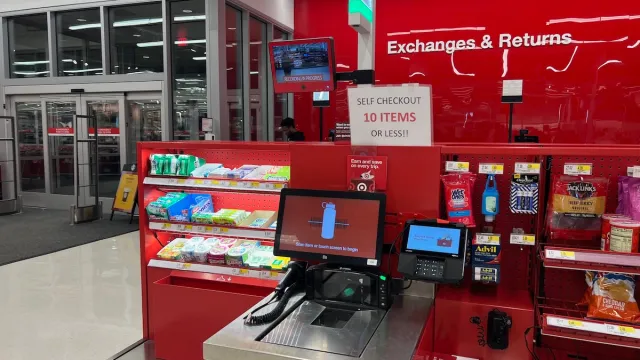
Self-checkout is one of the most polarizing aspects of the modern shopping experience. Some people love it, some hate it, and others can’t make up their minds (read: they adore it when it works and curse it when it glitches). However, many people agree that self-checkout often makes the shopping experience faster—and some are alarmed that a few stores are implementing item limits on the machines, similar to the express lane at the grocery store. Read on to see who is pioneering the change and how it might impact you.
RELATED: Walmart Worker Issues Warning to Shoppers About Self-Checkout.
Target is implementing a 10-item limit at some self-checkouts.
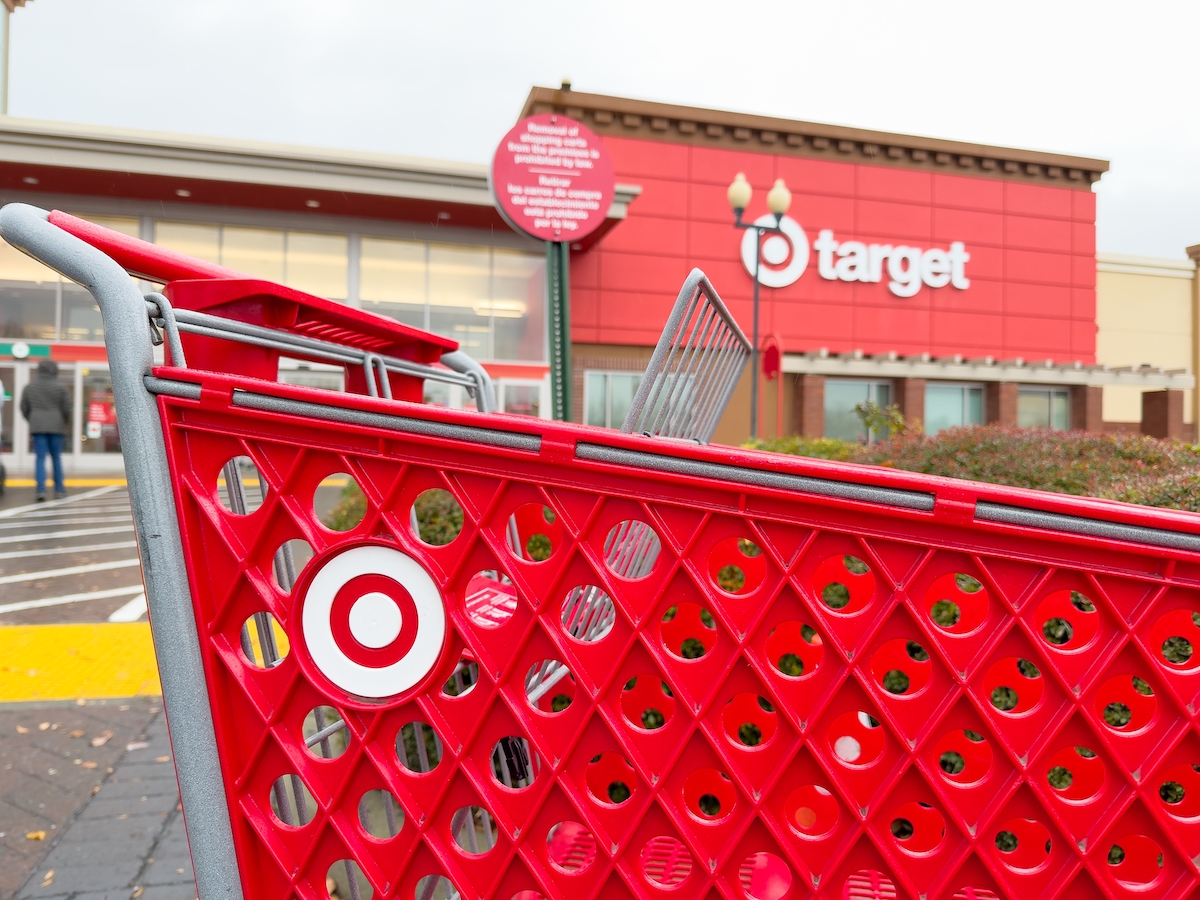
For years, self-checkout machines at Target have allowed shoppers to ring up their seasonal candles, buzzy beauty products, and cutesy home decor by themselves. But this fall, several locations in Maine have put an item limit on the lanes, restricting shoppers to 10 products or fewer, according to WCYY. A Best Life reporter saw the same thing happen at a Target location in Wall Township, New Jersey.
A spokesperson from the store said the move is meant to benefit shoppers. “At select locations, we are testing self-checkout lanes of 10 items or fewer in order to reduce wait times and better understand guest preferences,” they told Coupons in the News. If your store is impacted, you’ll see signage by the machines.
RELATED: Kroger Boycott Threats Grow Amid Self-Checkout Backlash.
Grocery stores are also imposing self-checkout limits.
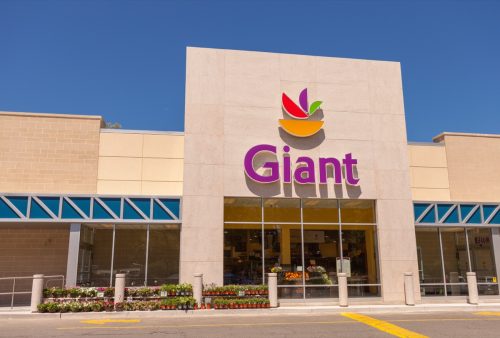
Target isn’t the only store creating limits. According to radio station WPST, a ShopRite grocery store in Hamilton, New Jersey, is implementing a 20-item limit at self-checkout.
The station was made aware of the change from a post on Nextdoor. “I was at ShopRite on Route 130 Friday afternoon with my wife, had about 30 to 40 items, and we were going to use the self-checkout,” the post read. “They used to have lanes for 20 items or less and lanes for multiple items. Now they are strictly enforcing no more than 20 items at ALL self-checkout lanes.”
It appears that ShopRite may be implementing this rule across the state, as a Best Life reporter also noticed the limits at a store in Belmar, New Jersey.
Additionally, as Grocery Dive noted in September, all 165 locations of grocery store Giant—which operates in Maryland, Virginia, Delaware and Washington, D.C.—had already imposed a 20-item limit at self-checkout.
Julie Ramhold, a consumer analyst with the shopping comparison site DealNews.com, says it’s not shocking these changes are being made to curb wait times. “You essentially have one person handling four or more registers, so if more than one shopper needs help, it’s going to slow the whole area down,” she points out. “And for shoppers who choose to try to check out a full cart themselves, it can be particularly slow.”
RELATED: Lawmakers Are Fighting Against Self-Checkout Kiosks at Grocery Stores.
Stores might also limit self-checkout due to theft.
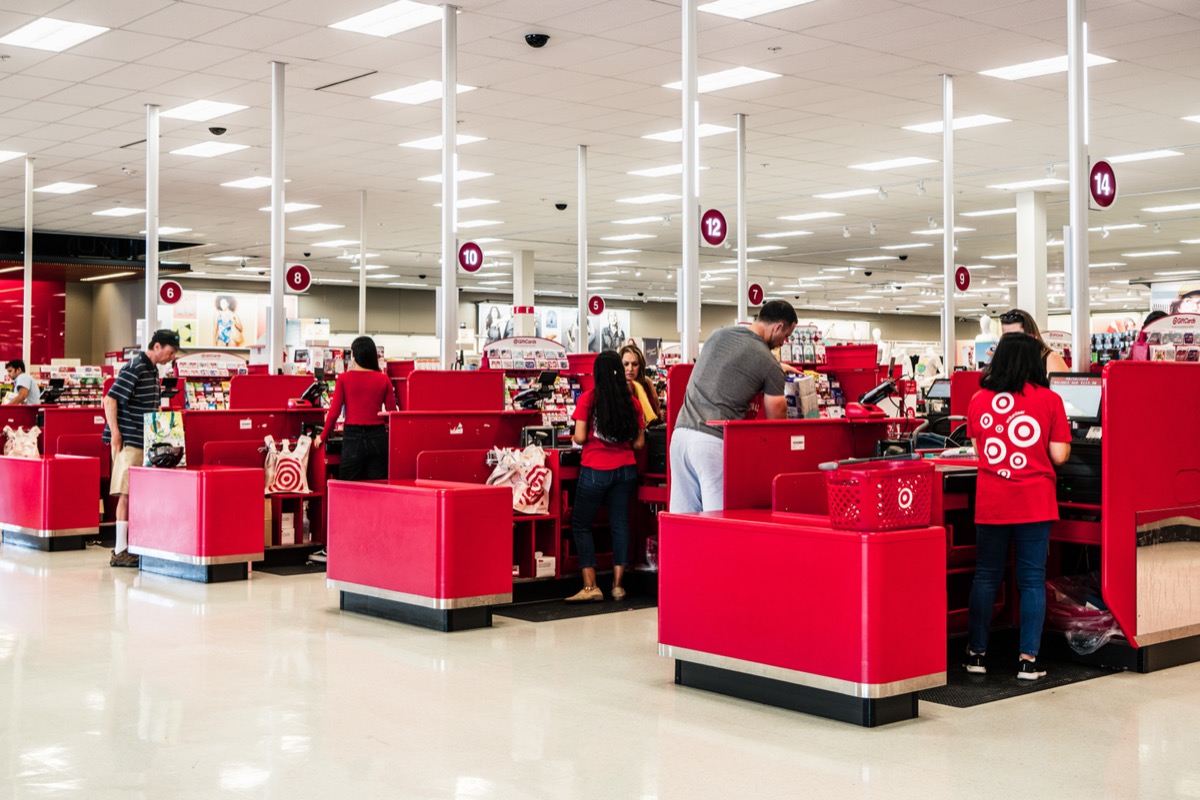
Increasing check-out speed isn’t the only factor at play when companies decide to implement limits. The move could also help reduce theft, something many retailers are grappling with. According to Insider, U.S. retailers lost over $41 billion due to external theft, per an industry survey published in September.
The issue is difficult to curb at self-checkout. “There are typically four registers, if not more, and a single store associate is watching them,” says Ramhold. “That associate is a deterrent for some, sure, but for thieves that work in tandem, one can provide a distraction while another figures out a way to steal an item.”
Some retailers have also begun putting more cameras in place, but even that isn’t foolproof, Ramhold explains.
RELATED: Shoppers Slam Self-Checkout Tipping Requests: “Stop This Madness”
These could be the effects of item limits.
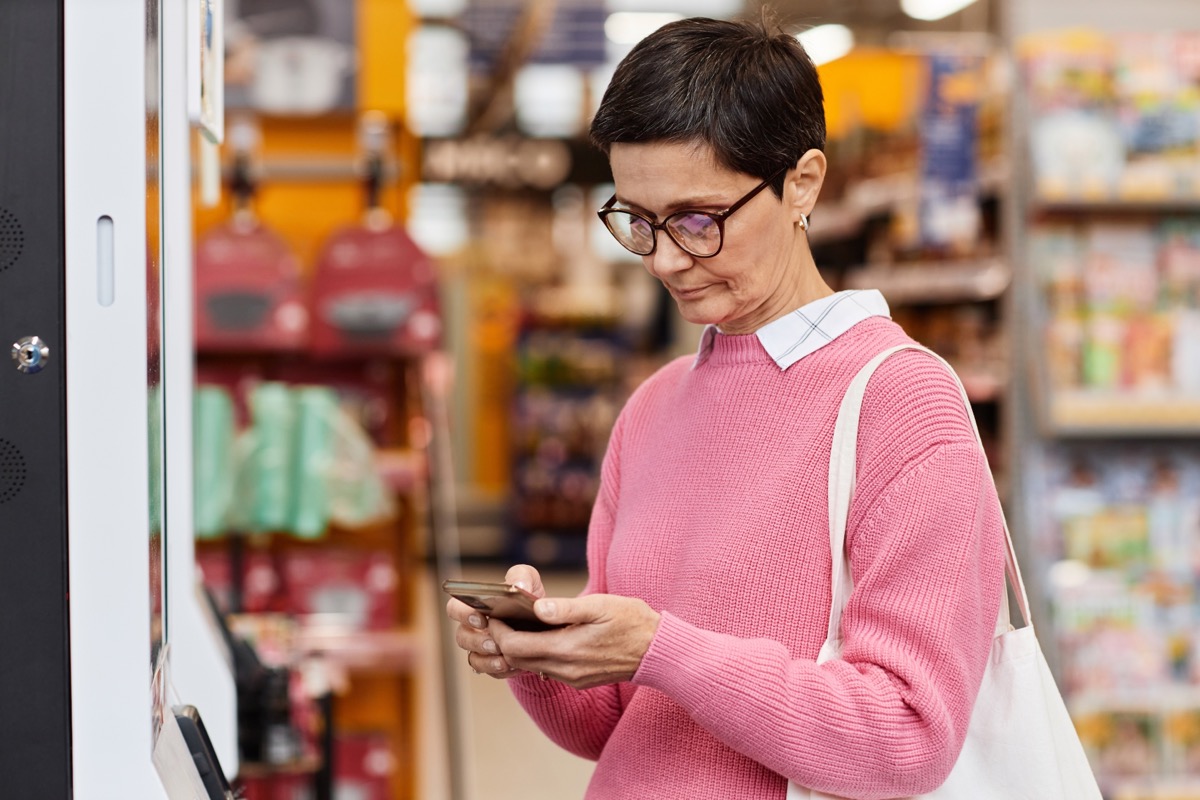
If stores go forward with creating item limits, shoppers can expect a few other changes, too. First, the stores will need to open more registers for customers with larger orders.
“If limits are imposed at self-checkout, then during particularly busy times, a store may need to staff more registers to ensure customers are taken care of in a timely manner,” says Ramhold.
That’s where some shoppers are skeptical. “They will barely even schedule cashiers at my location,” wrote one person on Reddit. “There are no cashiers,” said another.
Ramhold also said the switch could be the precursor to other self-checkout changes. She says retailers like Target, which offer groceries and electronics, might add a price limit to their self-checkout. That way, if you’re buying a TV, you’ll have to go to an associate, and if you’re buying milk and eggs, you can check out on you’re own. They could enforce this by requiring you to have security tags disabled or removed.
RELATED: 6 Self-Checkout Mistakes That Are Costing You Big, Experts Warn.
Customers are likely to have mixed reviews.
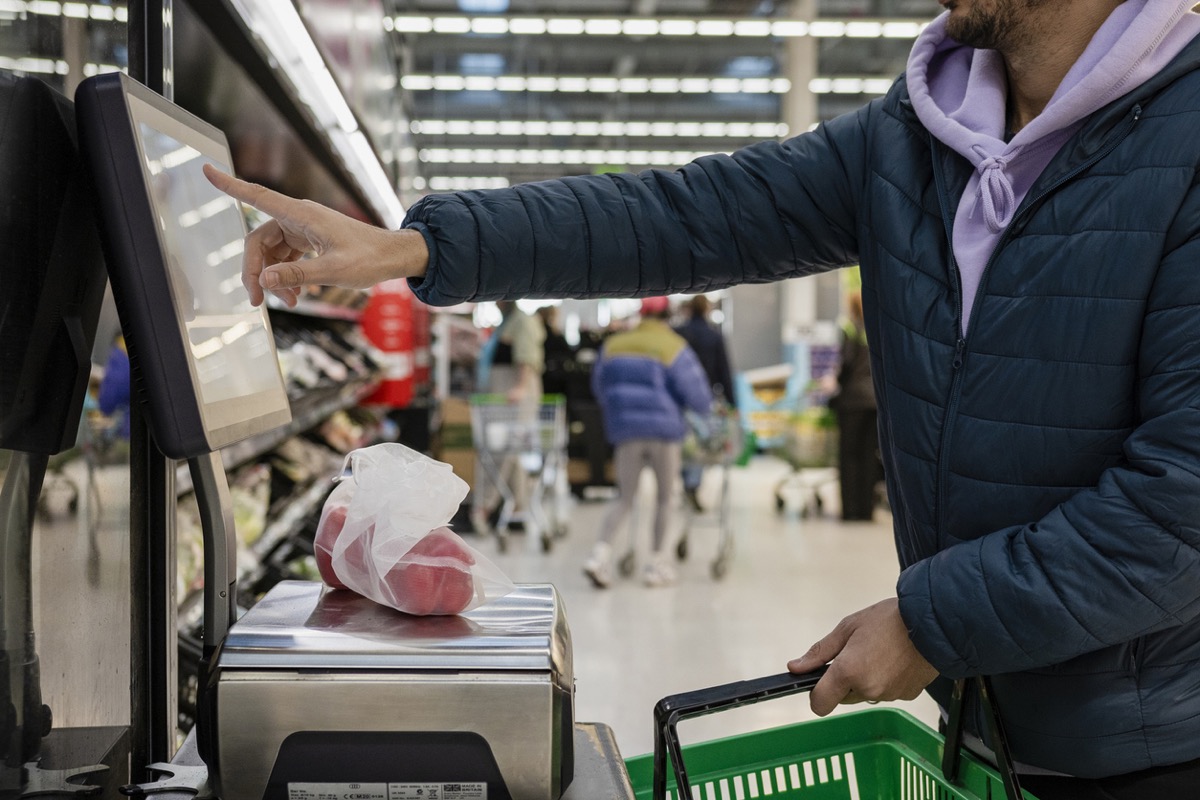
Like any major change, each shopper will have different feelings about this one. “If they’re used to using self-checkout, they may be adjusted to the process and won’t like having to stand in line,” says Ramhold. “If they find their routine taking longer because of new rules, they may be more likely to levy complaints at the store or even cause a scene when they find out they can’t use self-checkout.”
However, for those who tend to shop small, the change could be a blessing. “The overall use of those registers gets faster as long as people are adhering to [the limit],” adds Ramhold. Customers will ring up their items faster, and more shoppers can get out the door as quickly as possible.
RELATED: For more up-to-date information, sign up for our daily newsletter.